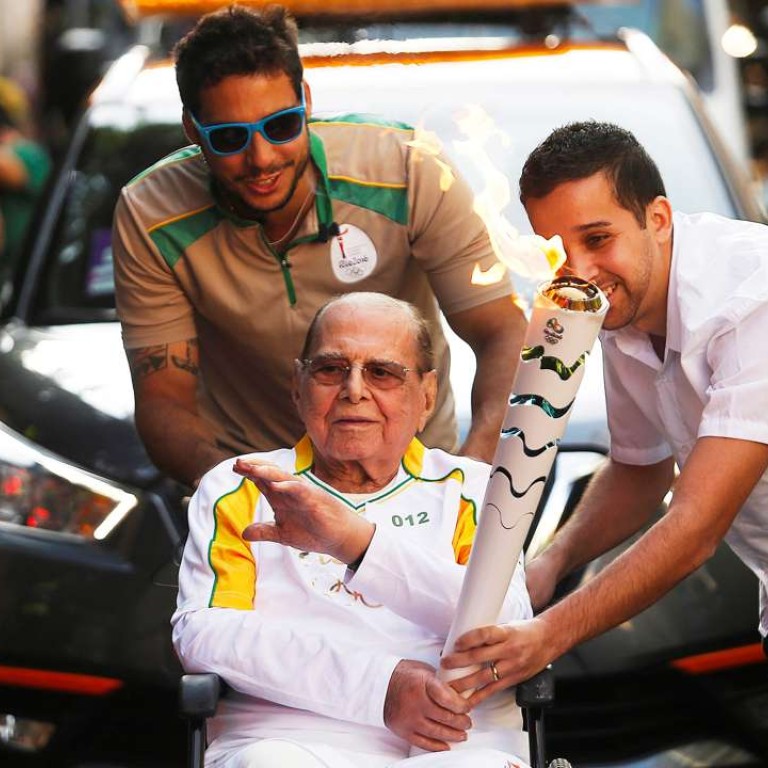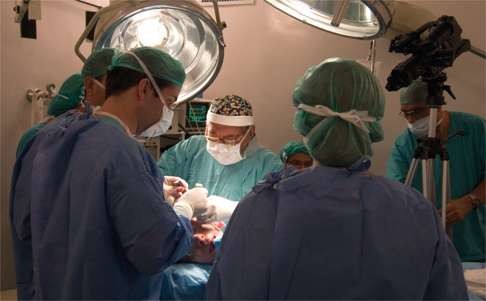
Ivo Pitanguy, Brazil's icon of plastic surgery, dies one day after carrying the Olympic torch
A cultural icon in a country famous for keeping up its looks, Pitanguy improved the looks of scores of famous people, many of whom stayed on his island of Angra dos Reis in Rio de Janeiro state
Ivo Pitanguy, a plastic surgeon whose skill with the scalpel drew celebrities to his operating table from around the world and made him a cultural icon in beauty-obsessed Brazil, died on Saturday, one day after passing the Olympic torch for the Rio Games. He was 90.
Pitanguy died of a heart attack in his Rio home on Saturday, a spokeswoman said. He had been suffering from a kidney illness since last year, she said.
In his last public appearance, seated in a wheelchair, Pitanguy held the Olympic torch in the Rio neighbourhood of Gavea where his clinic is located on the final leg of the relay to Friday’s opening of the Games.
The son of a doctor, Pitanguy reportedly fainted the first time he saw surgery as a boy but went on to become a revered dispenser of beauty at his Rio de Janeiro clinic and to cement Brazil’s place as one of the world’s plastic-surgery capitals.

He ended his days rich, with an island a few minutes’ helicopter ride south of Rio where the nature lover set up his own ecological sanctuary.
But Pitanguy, the inventor of procedures such as the “Brazilian butt-lift”, first shot to prominence and hero status by providing his skills free to victims of a disaster.
After a huge circus tent burned hundreds of spectators in 1961 in one of the world’s worst fires, Pitanguy rushed to help save lives and later repaired the victims’ disfigurements.
From then on, Pitanguy always saw plastic surgery as more than skin-deep and fought the prejudice against it in the rest of the medical world.

“This tragedy proved the importance of our specialty,” he said on his website. “It is the attempt to reach harmony between body and spirit, emotional and rational.”
After training in Paris and London, he became a pioneer of plastic surgery in Brazil and the toast of high society in the beach-side city, where good looks are venerated. But he still offered his staff and services free of charge to less well-off patients one day a week.
“Ivo Pitanguy dedicated his life to helping people live better,” Brazil’s interim President Michel Temer said in a statement lamenting the death of a man he called a scientist and an intellectual. “He will be missed.”
Pitanguy attracted celebrities and the wealthy worldwide through foreign magazine features and TV shows about “The man with the golden touch.”
His friend Salvador Dali painted him and in 1999 he received one of the highest honours in the Carnival city when a samba school used him as their theme: “The Universe of Beauty - Master Pitanguy.”
Brazil has become one of the world’s biggest markets for plastic surgery, with the country’s bulging middle class able to pay for a face-lift in installments and a growing industry in plastic surgery vacation packages for foreign visitors.

